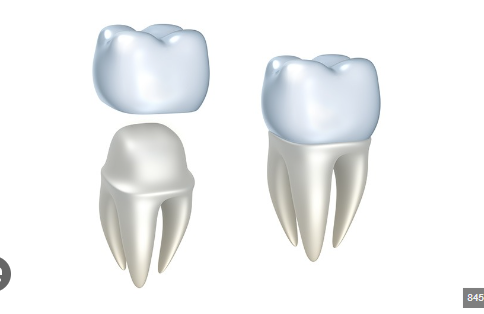Understanding Dental Crowns: What You Need to Know
What is a dental crown?
A dental crown is an artificial restoration that fits over the remaining portion of a tooth, making it strong and giving it the shape of a natural tooth. Crowns are used to address various dental problems such as broken, damaged, stained, or decayed teeth. They can also support the structure of a dental bridge, top off a tooth implant, or be used for specific cosmetic reasons. Dental crowns play a dual role in restoring full tooth functionality and harmonizing with your natural teeth.
Types of Dental Crowns
There are several types of dental crowns available, each with its own set of advantages:
- Porcelain Crowns: Known for their natural appearance, they are often used for front teeth.
- Metal Crowns: Extremely durable and ideal for molars that require strength for chewing.
- Composite Crowns: A blend of materials that offers a balance between aesthetics and durability.
Benefits of Dental Crowns
Dental crowns offer numerous benefits, including
- Restoration of tooth functionality allows for pain-free chewing and speaking.
- Aesthetic improvement: Crowns are designed to match the color and contour of your natural teeth.
- Protection: Shields a weakened tooth from further damage or decay.
- Durability: With proper care, dental crowns can last many years.
Dental crowns are expertly designed to blend seamlessly with your natural teeth, often making it hard to distinguish the crowned tooth from the rest.
The Dental Crown Procedure in Toronto
Initial Consultation
The first step in getting a dental crown in Toronto is the initial consultation. During this visit, your dentist will evaluate your oral health, discuss your specific needs, and determine if a dental crown is the best solution for you. This consultation is crucial for outlining the procedure and setting expectations.
Preparation and Impressions
Once you decide to proceed, the next step involves preparing the tooth and taking impressions. Your dentist will remove any decay and shape the tooth to fit the crown. Impressions of your teeth are then taken to create a custom crown that matches your bite and natural tooth color.
Placement and Follow-up
In the final step, your Toronto dentist will place the dental crown on your tooth and adjust it for a perfect fit. The crown is then cemented into place, and your bite is aligned. Regular follow-up appointments are essential to ensure the crown’s placement and longevity.
Regular follow-ups are crucial for maintaining dental health and the longevity of your dental crown.
Choosing the Right Dental Crown Material
When it comes to getting a dental crown in Toronto, choosing the right material is crucial for both functionality and aesthetics. The material you select can impact the durability, appearance, and cost of your dental crown. Here are the main types of dental crowns available:
Porcelain Crowns
Porcelain crowns are popular for their natural appearance and ability to blend seamlessly with your existing teeth. They are especially suitable for front teeth due to their aesthetic appeal. However, they may not be as durable as other materials and can be more expensive.
Metal Crowns
Metal crowns, including those made from gold, silver, and other alloys, are known for their durability and strength. They are less likely to chip or break and are ideal for molars that endure heavy chewing. The downside is their metallic color, which makes them less suitable for visible teeth.
Composite Crowns
Composite crowns are made from a resin material that can be color-matched to your natural teeth. They are a more affordable option but are less durable and more prone to wear and tear compared to porcelain and metal crowns.
When selecting a dental crown material, consider factors like the position of the tooth, its condition, and the shade of your adjacent teeth. Your dentist can help you make an informed decision based on your specific needs.
Cost of Dental Crowns in Toronto
Factors Influencing Cost
The cost of dental crowns in Toronto can vary significantly based on several factors. Key determinants include
- Dental lab fees: The cost of creating the crown in a dental laboratory.
- Specialist fees: Fees charged by the dental specialist performing the procedure.
- Type of crown material: Options include composite resin, porcelain, metal alloy, or porcelain fused to metal.
- Insurance coverage: Whether or not you have dental insurance can greatly affect the out-of-pocket cost.
- Additional procedures: Sometimes, a root canal or other preparatory procedures are necessary, which can add to the overall cost.
Insurance and Financing Options
If you have a typical insurance plan, a single crown can cost you around $200 to $600. Without dental insurance, the cost can range from approximately $800 to $1200 or more per tooth. It’s advisable to consult with your insurance provider to understand what portion of the cost will be covered.
Many dental clinics in Toronto offer financing options to help manage the cost of dental crowns. These can include payment plans or third-party financing services.
Conclusion
Getting a dental crown is a straightforward and beneficial procedure for those dealing with decayed, broken, or weakened teeth. With the information provided in this article, you should now have a comprehensive understanding of what dental crowns are, the procedure involved, and the benefits they offer. Consulting with a qualified dentist is crucial to determine the best treatment plan for your needs. If you have any further questions or concerns, d





